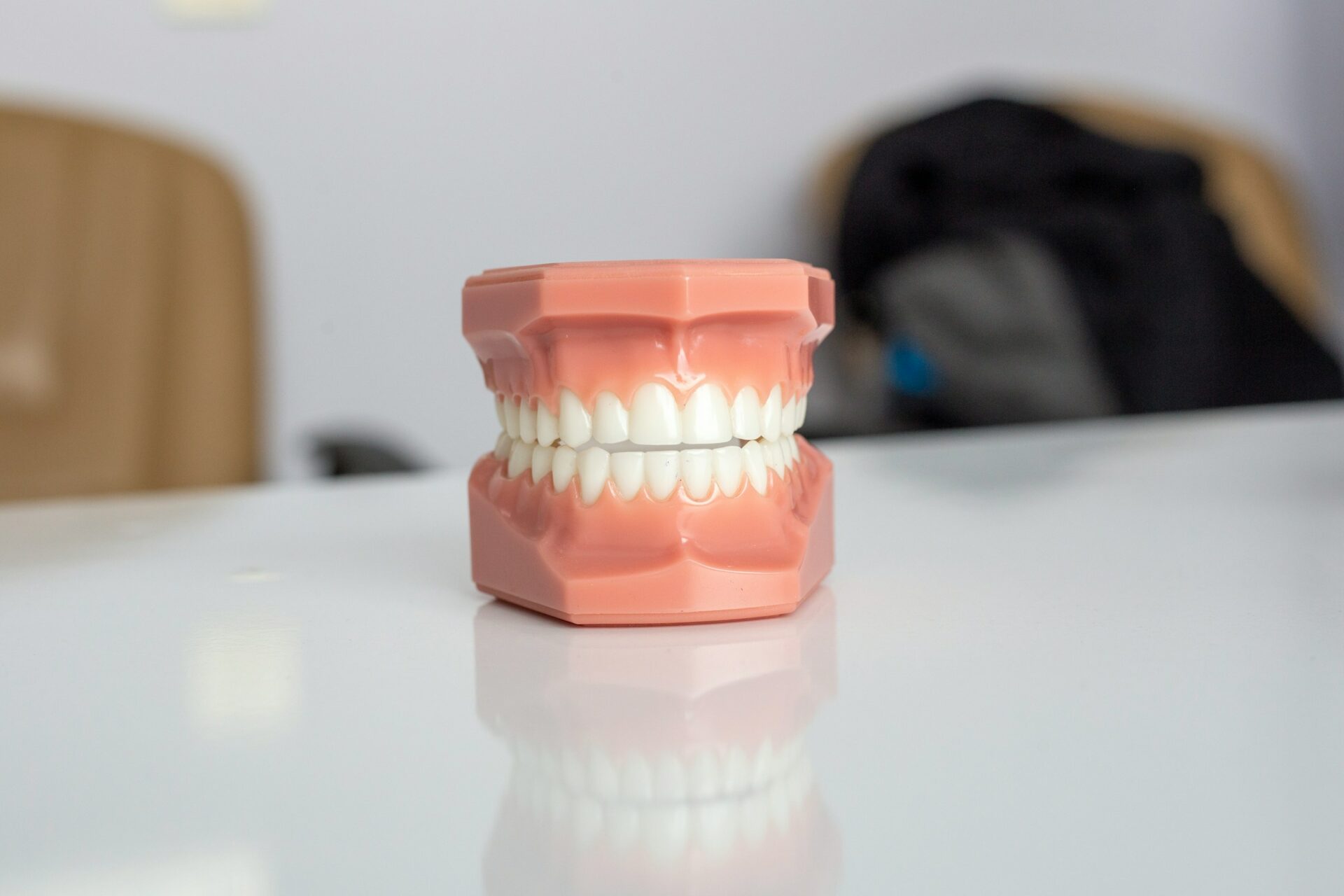The Impact of Gum Disease on Overall Health: What You Need to Know

The Impact of Gum Disease on Overall Health: What You Need to Know
Gum disease is an inflammatory condition that damages the soft tissue and structures that support your teeth.
In this post, you will learn how poor oral hygiene, poor nutrition, and other risk factors may lead to harmful bacteria entering the bloodstream. We will also explore early treatment options for anyone wanting to preserve strong teeth and gums and limit the potential effects of gum disease on overall health.
Understanding Gum Disease and Its Stages
Gum disease covers multiple conditions involving infection and inflammation of the gum line. In early stages, it often presents as gingivitis, marked by swollen or bleeding gums, puffy gums, and bad breath. When it is left untreated, it may become advanced periodontitis—a severe gum disease in which bone supporting the teeth deteriorates, sometimes leading to tooth loss.
The Main Stages
Early Gum Disease (Gingivitis)
- Mild inflammation of gum tissue, typically featuring bleeding gums or swollen gums.
- Often reversible if you treat gingivitis promptly.
Periodontal Disease
- Also called periodontitis; it creates periodontal pockets where bacteria thrive.
- Bone loss compromises tooth stability, risking loose teeth.
Severe Periodontitis
- May require surgical procedures such as flap surgery, guided tissue regeneration, or bone grafting.
Affected teeth can become irreversibly unstable, often necessitating extraction.
Addressing each stage of gum disease early can prevent dire consequences to both dental health and overall wellbeing.
Why Gum Disease Matters to Overall Health
Though gum disease starts in the mouth, it can impact the entire body. Inflamed gums allow harmful bacteria to enter the bloodstream, creating an increased risk of other health conditions. Below are some critical connections:
- Heart Disease
Certain studies link gum infections with heart disease, suggesting that chronic oral inflammation may escalate arterial plaque formation. - Systemic Diseases
Individuals with diabetes, for instance, may find it harder to control blood sugar levels when dealing with periodontal disease. Other systemic diseases could similarly worsen because of ongoing gum inflammation. - Nutritional and Immune Impact
Poor nutrition compromises your immune defences, allowing gum infection to intensify. In turn, the systemic inflammation from the mouth may affect energy levels and overall resilience.
Maintaining strong oral health by controlling gum disease is, therefore, a crucial step in preserving broader vitality.
Risk Factors That Lead to Gum Diseases
While many elements can spark gum disease, some people face particular susceptibility. Risk factors include:
- Poor Oral Hygiene: Inconsistent brushing and flossing leaves dental plaque and hardened plaque to irritate the gum tissue.
- Chewing Tobacco or Smoking: Both slow healing, hide early signs, and exacerbate severe gum disease. Quitting smoking significantly reduces these risks.
- Hormonal Changes: Pregnant women or people experiencing menopause may notice more swollen or bleeding gums.
- Poor Nutrition: Diets lacking vitamins, minerals, and proteins undermine healthy teeth and gums.
Addressing these risk factors can help prevent gum disease and prevent periodontal disease. A strong daily routine—including brushing your teeth twice a day with fluoride toothpaste—is vital for anyone prone to gum problems.
Recognising Symptoms of Gum Disease
Although many discover gum disease later than they should, certain warning signs provide clues:
- Bleeding Gums: Occurs during brushing your teeth or flossing.
- Swollen Gums: Reddish, inflamed tissues along the gum line.
- Bad Breath: Persistent odour due to harmful bacteria and infection.
- Loose Teeth: Indicates potential bone loss or a weakened periodontal ligament.
- Gums Pulling Away from Your Teeth: Recession can expose roots, leading to sensitive teeth.
If you notice these symptoms of gum disease, see a dentist regularly or consult a dental hygienist. Treated early, gum disease may be reversed or halted.
How Gum Disease Progresses Inside the Mouth
With poor oral hygiene, debris accumulates, allowing harmful bacteria to multiply. This can result in gum infection, which triggers inflammation and potential bone loss. Over time:
- Periodontal Pockets Form
The gums recede away from your teeth, forming deeper pockets that trap more debris and bacteria. - Soft Tissue Breakdown
Ongoing inflammation compromises the soft tissue around the tooth. Once stable structures become weak, increasing the likelihood of loose teeth. - Bone Supporting Your Teeth Degrades
This process can lead to lost bone, further loosening the teeth. If no intervention occurs, tooth loss may happen.
Treating Gum Disease: Key Approaches
To effectively treat gum disease, dentists often begin with conservative methods:
- Professional Cleaning
Hygienists and dentists remove plaque and hardened plaque from tooth surfaces and the gum line. - Root Planing
Involves scaling below the gum line and smoothing tooth roots to eliminate bacteria, helping gum tissue reattach. - Oral Antibiotics
In some cases, antibiotics target acute infections. However, deep cleaning and consistent oral hygiene remain essential. - Surgical Procedures
For severe periodontitis, advanced treatment—like flap surgery, bone graft, or guided tissue regeneration—rebuilds support for affected teeth. If lost bone is significant, bone grafting may reinforce the jaw structure and help stabilise teeth.
Regardless of your stage of gum disease, early treatment can prevent further deterioration and safeguard your overall health.
Daily Prevention Tactics
Since gum disease can devastate the structures that support your teeth, focusing on prevention is paramount. These self-care habits make a real difference:
- Brush Twice a Day
Use a soft toothbrush and fluoride toothpaste, carefully working along the gum line to remove plaque. - Floss or Use Interdental Cleaners
At least once daily, flossing cleans spaces unreachable by a brush, preventing a gum infection before it starts. - Lifestyle Habits
Limit sugary snacks, consider quitting smoking, and reduce or avoid chewing tobacco. Managing hormonal changes (if relevant) and dietary adjustments also helps you maintain healthier teeth and gums. - Dentist Regularly
Schedule exams and professional cleanings to spot early signs of trouble. If gum disease is treated early, it may not progress to advanced periodontitis.
Such measures protect both your oral health and your overall wellness.
Wider Health Consequences
Unchecked gum disease can carry repercussions not only for your mouth but also broader national health concerns. For instance:
- Heart Disease
As noted earlier, gum diseases may contribute to arterial inflammation, correlating with a higher chance of heart complications. - Systemic Diseases
The chronic inflammation from a gum infection is linked to worse outcomes in diabetes and other conditions. By minimising gum inflammation, you lower the burden of these ailments. - Quality of Life
Beyond possible hospital visits or medication costs, living with loose teeth or dealing with constant bad breath can adversely affect personal wellbeing and social interactions.
When you treat gum disease effectively, you invest in your full-body health.
Real-Life Scenario: The Impact of Neglect
Imagine someone ignoring swollen or bleeding gums for months. Over time, hardened plaque accumulates, forming larger periodontal pockets around the teeth.
They begin to lose bone supporting these affected teeth, and eventually they face tooth loss. Beyond the oral health toll, this person may also experience higher inflammation levels systemically, with more risk of heart disease or other health conditions.
If they had sought early treatment, they could have avoided these complications. This reality highlights the seriousness of allowing gum disease to be left untreated.
A Call to Action For Better Oral Health
Brushing your teeth twice a day, flossing carefully, and monitoring any warning signs are crucial habits in preventing gum disease. If issues arise, professional help can treat gum disease using methods like root planing or, in severe cases, surgical procedures such as guided tissue regeneration or a bone graft. By investing in healthy teeth and gums, you reduce the increased risk of systemic illness and maintain an overall healthier life.
Focusing on Consistency For Lasting Results
Prevent gum disease by focusing on daily consistency, from brushing with a soft toothbrush to improving oral hygiene and scheduling regular check-ups. Even minimal changes, such as limiting sugar, considering quitting smoking, or making dietary tweaks, yield huge benefits.
In this way, you prevent periodontal disease escalation, keep your gums clean, and help your teeth fit comfortably in your mouth for years to come.
Impact of Severe Gum Disease on Your Health
Gum disease is not just about bleeding gums or potential tooth loss—it can compromise your entire immune system and heighten vulnerabilities to other health conditions. The best strategies to avoid these outcomes include treating gingivitis promptly, adopting thorough oral hygiene practices, and seeing a dentist regularly.
Managing Gum Disease Early For a Healthier Future
Recognise that gum diseases can be managed and often treated early, especially if you heed early signs like swollen gums or bad breath. Whether you need root planing, a bone graft, or less invasive therapies, do not underestimate the effect of a healthy mouth on your broader wellbeing.
With consistent effort, you can prevent gum disease, maintain strong teeth and gums, and ensure a healthier future—one free from hidden dangers lurking behind inflamed gums.
Disclaimer: This article is for general informational purposes only. For specific advice on your oral health, consult a qualified dental professional.
